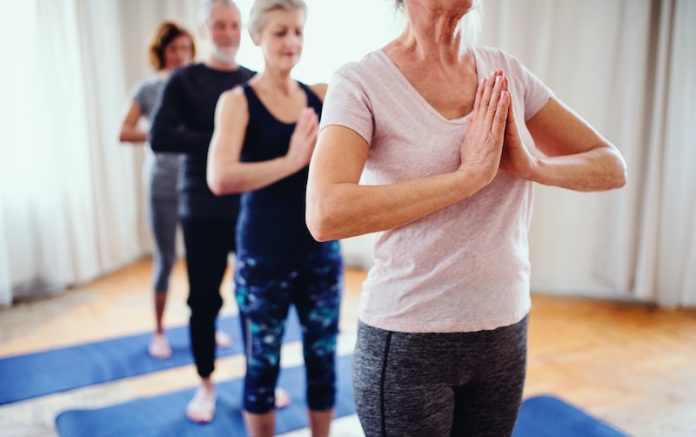
As people get older, their bodies naturally start to slow down. We call this ‘frailty’.
It means that a person has lost some of their strength and their body doesn’t recover as well from illnesses or injuries.
Frailty affects about 1.5 million older people in Canada. It’s a big concern because people who are frail often need a lot of help to stay healthy and independent.
Virtual Care: The New Way Forward?
Researchers from McMaster University and the Geras Centre for Aging Research wanted to find out if using the internet could help frail elderly people.
They were especially interested in online programs that could help people exercise and stay strong at home.
A lot of people thought that this might not work. They worried that older people might not be good at using the internet or that they might not stick to the program. But the researchers thought it was worth a try.
They knew that online programs could reach a lot of people at once, and could help older people who can’t leave their homes easily.
The Study: A Promising Start
The researchers tested their idea during the COVID-19 pandemic, from August 2020 to November 2021. This was a time when it was really important for older people to stay at home as much as possible.
The researchers signed up 72 older people for their study. They split these people into two groups. The first group did the online program, and the second group just got a phone call each week.
The online program was quite involved. It had exercise classes twice a week that were broadcast live over the internet.
Participants also got a weekly phone call from a volunteer, and they could talk to a nutritionist and a pharmacist over a video call. They were also given protein supplements to help them stay strong.
The Results: A Feasible Solution
The results were really promising. 81% of the people in the online program stuck with it and did their exercise classes, which was more than the researchers had expected.
Alexandra Papaioannou, a professor from McMaster University who helped lead the study, said that the results were very encouraging.
She explained that the online program helped people do things like cross the street and get up from a chair by themselves. This meant they could stay in their own homes and not have to move into a care home.
What’s Next?
Although these results are promising, the researchers believe they need to do more studies to be sure that online programs can really help frail elderly people.
They want to try their program again after the COVID-19 pandemic is over, when people have more choices about how they stay active and healthy.
They hope to show that their program is a good option for all older people, not just those who can’t leave their homes.
If you care about wellness, please read studies about drug that could boost muscle growth and prevent aging, and common exercises that could protect against cognitive decline.
For more information about health, please see recent studies about fruit extract that may reduce muscle soreness by nearly 50% after exercise, and results showing that Harvard scientists find exercise may help treat Alzheimer’s disease.
The study was published in Pilot and Feasibility Studies.
Follow us on Twitter for more articles about this topic.
Copyright © 2023 Knowridge Science Report. All rights reserved.



